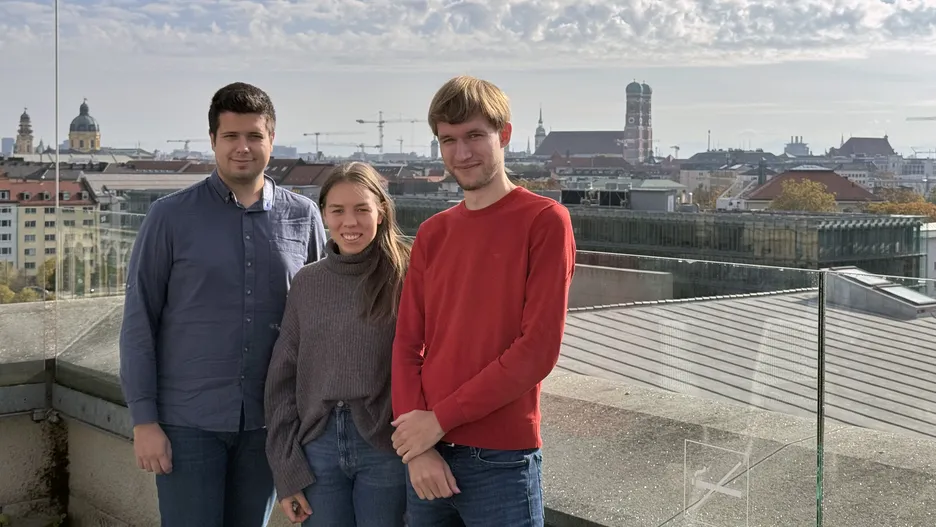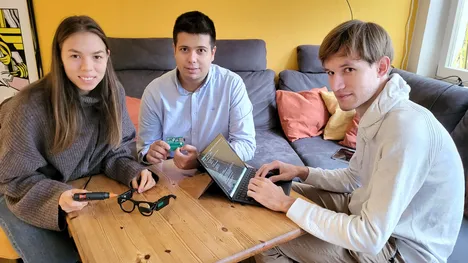Interactive glasses for people with hearing disabilities
Research, Studies |

The Sonovision team consists of Daniel Martin, a student of Information Systems, Dragan Rašeta and Paula Ruhwandl, who are both studying Electrical Engineering and Information Technology. Daniel Martin is responsible for all things software, Dragan Rašeta takes care of the hardware and Paula Ruhwandl is in charge of public relations and organization. The project is supervised by doctoral student Yushen Zhang from the Chair of Design Automation.
The students of the Technical University of Munich (TUM) are developing glasses that will support people who are deaf or hard of hearing in everyday life by providing visual warnings of dangers. The glasses will also transcribe conversations and display them both in the field of vision and on the cell phone. They have been working on creating the product for more than four months by selecting and developing components and software.
Sonovision takes part in the COSIMA competition

The Sonovision team will be presenting the prototype of their interactive glasses at the COSIMA (Competition of Students in Microsystems Applications) competition on November 14 and 15, 2024. The challenge is to design an application that improves and facilitates the interaction between people and technology in various areas of daily life. Specifically, the aim is to find new applications for sensors and microsystems, present a functional prototype and convince a twelve-member jury of the innovation and functionality.
COSIMA is organized by the German Association for Electrical, Electronic & Information Technologies (VDE). The Federal Ministry of Education and Research (BMBF) is funding the competition.
Innovative product, strong competition
The Sonovision team is convinced that their product can provide real support in everyday life and is looking forward to the presentation.
“We have been working a lot on our glasses in recent months and believe the product is innovative and very helpful for our target group. That is why we are entering the competition in a positive mindset. The TUM teams have always done well in recent years – that is very motivating and of course it puts a bit of pressure on us. In addition, eleven teams are taking part this year instead of the previous four to six. We would be very pleased to be able to further develop the product and present it internationally – but it depends on the performance at the competition,”
says Paula Ruhwandl.
The presentation of the prototypes takes place at the electronica trade fair in Munich – one of the largest trade fairs in the field of electrical engineering. Each team has the opportunity to design its own exhibition stand and present its product over the course of two days. The three winning teams will be awarded a cash prize and qualify for the international iCan competition, which is hosted at different locations around the world every year.
